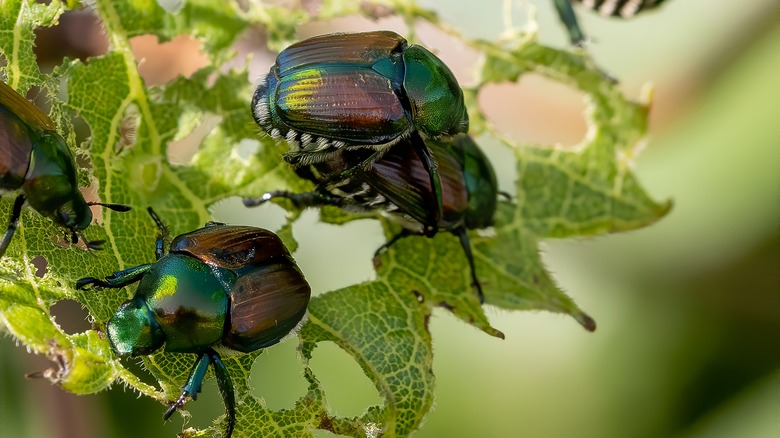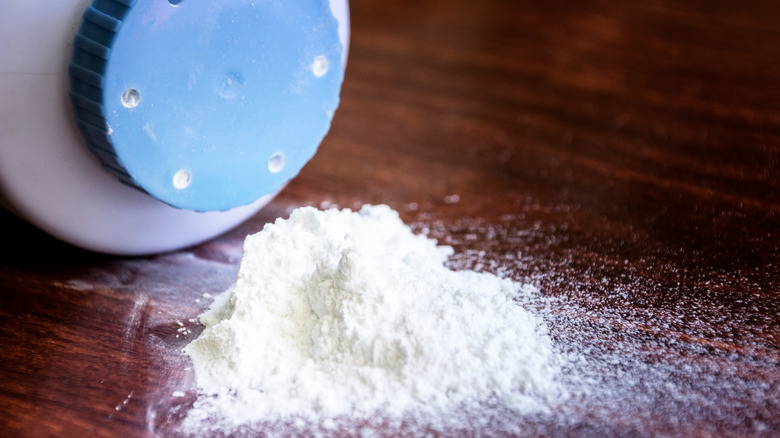The Common Household Item That'll Stop Japanese Beetles Right In Their Tracks
Introduced accidentally to the United States in 1916, Japanese beetles have increased across the eastern U.S. and continue their westward march. These invasive pests pose a considerable risk to gardens and landscapes, targeting the leaves, flowers, and fruits of more than 300 different plants. Additionally, they damage turfgrass by chewing its roots, resulting in brown, dying turf that can be effortlessly pulled up like a loose carpet. Their presence can also lure other pests like birds and rodents, which feed on the beetles and their larvae. They definitely are a pest that you want to keep out of your yard; the good news is that an everyday item — baby powder — can help protect your plants from Japanese beetles.
On a calm, dry day, apply baby powder directly to the leaves of plants that Japanese beetles favor. Reapply after rain or watering to maintain its effectiveness. Baby powder is an affordable and straightforward method to manage these troublesome pests and protect your plants. Additionally, baby powder is eco-friendly and doesn't introduce harsh chemicals into your garden.
Why baby powder is an effective deterrent
Baby powder, also known as talcum powder, is effective for getting rid of Japanese beetles for a few reasons. The underlying theory suggests that the powder alters the taste and aroma of plants when sprinkled onto leaves. This modification is crucial because Japanese beetles are particularly drawn to the scent of plants. When the powder masks the inherent fragrance of these plants, the beetles find them less appealing.
Consider the following recommendations for optimal results when using baby powder as a deterrent. Choose a day that's both calm and dry for application. Focus your application on the leaves of plants most attractive to Japanese beetles. Use a fine-mesh sieve or shaker for an even distribution. During application, take care not to breathe in the powder. Also, approach this method cautiously, as baby powder can harm beneficial insects like bees, especially when applied to flowers or areas where these insects frequent. While baby powder is a cost-effective approach to managing Japanese beetles, it's most effective when combined with other strategies, like insecticides or beetle traps, which can ensure more comprehensive protection.

